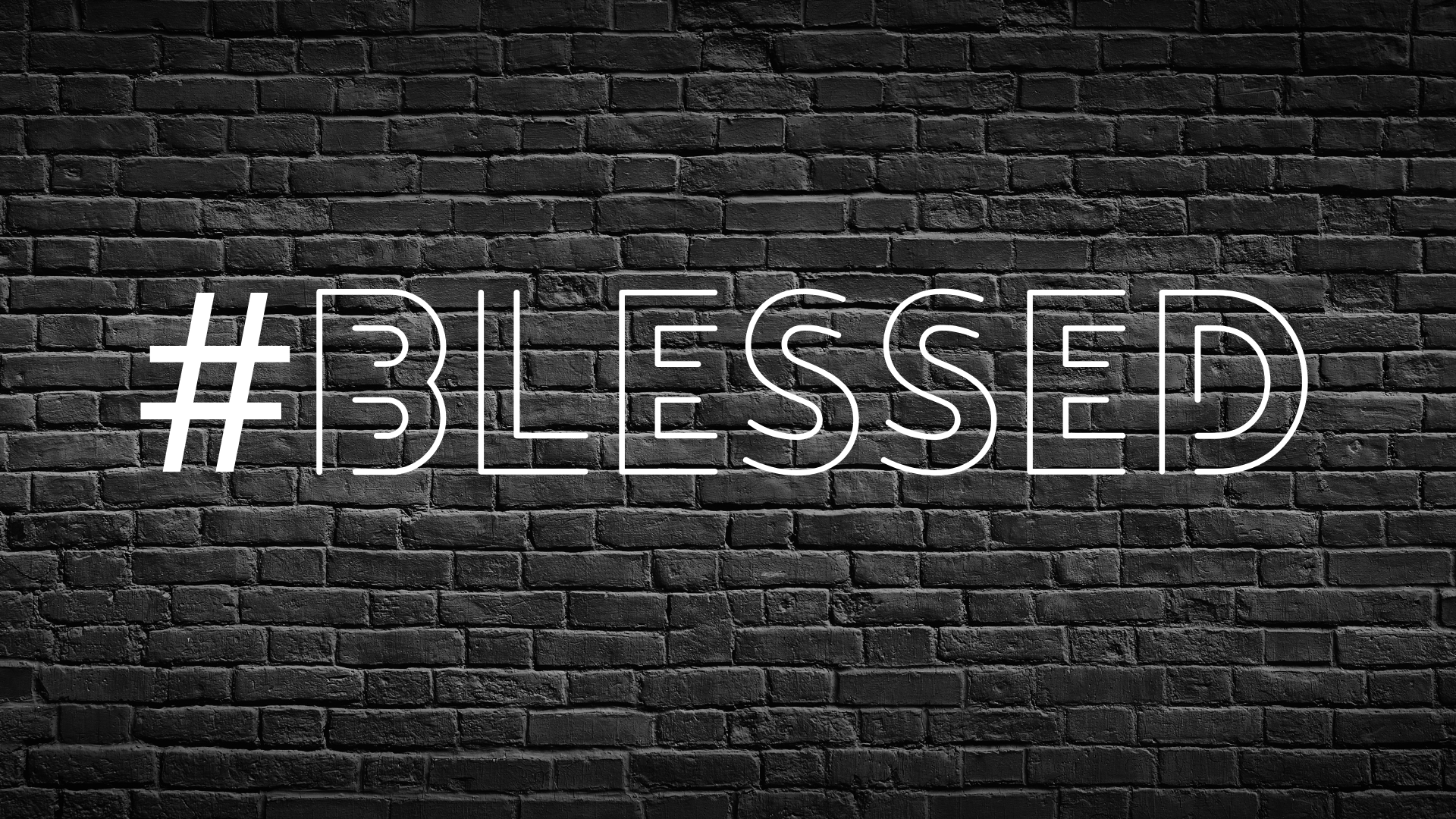THE CALL OF JEREMIAH
1. Call to Prophetic Ministry (Jeremiah 1:1-10)
A. Jeremiah the Priest (Jeremiah 1:1-3)
B. Jeremiah the Youth (Jeremiah 1:4-8)
C. Jeremiah the Prophet (Jeremiah 1:9-10)
2. Vision of Divine Judgment (Jeremiah 1:11-16)
A. The Almond Branch (Jeremiah 1:11-12)
B. The Boiling Pot (Jeremiah 1:13-15)
C. The Unfaithful People (Jeremiah 1:16)
3. Divine Encouragement and Empowerment (Jeremiah 1:17-19)
A. Commissioned as God’s Messenger (Jeremiah 1:17)
B. Assured of God’s Presence (Jeremiah 1:18-19)
Central Truth: God empowers through the Holy Spirit those He calls to Gospel ministry.
Focus: Study God’s call of Jeremiah to prophetic ministry and accept God’s call on our lives.
Evangelism Emphasis: The Church is commissioned to declare the Gospel in the power of the Spirit.
Text: “Before I formed thee in the belly I knew thee; and before thou camest forth out of the womb I sanctified thee, and I ordained thee a prophet unto the nations” (Jeremiah 1:5).
INTRODUCTION
Jeremiah has been called “the Weeping Prophet.” He weeps because God weeps, and God weeps because the Israelites have forsaken Him. Like every good parent, God disciplines His children; but, at the same time, He suffers and grieves over the fractured relationship. Jeremiah’s life and preaching embody God’s grief. His deep sorrow can be felt in the words of his passionate prayer: “Oh, that my head were waters, and my eyes a fountain of tears, that I might weep day and night for the slain of the daughter of my people! Oh, that I had in the wilderness a lodging place for travelers; that I might leave my people, and go from them!” (Jer. 9:1-2a NKJV).
Jeremiah loves his people; and he does not want to see them suffer the judgment of God. His profuse weeping is an expression of his compassion (and God’s compassion). However, Jeremiah wishes he could escape from a land where God’s people are worshiping idols in violation of the first commandment: “You shall have no other gods before Me” (Ex. 20:3 NKJV). The heavy burden of this young prophet is almost more than he can bear.
Over the next few weeks, we will examine the heart of Jeremiah’s ministry and message—his urgent call for God’s people to renounce idolatry and to renew their faithfulness to God. May this study make us aware of our own spiritual needs! With David, let us pray, “ Search me, O God, and know my heart: try me, and know my thoughts: And see if there be any wicked way in me, and lead me in the way everlasting” (Ps. 139:23-24).
1. CALL TO PROPHETIC MINISTRY
A. Jeremiah the Priest (Jeremiah 1:1-3)
1 The words of Jeremiah the son of Hilkiah, of the priests that were in Anathoth in the land of Benjamin: 2 To whom the word of the Lord came in the days of Josiah the son of Amon king of Judah, in the thirteenth year of his reign. 3 It came also in the days of Jehoiakim the son of Josiah king of Judah, unto the end of the eleventh year of Zedekiah the son of Josiah king of Judah, unto the carrying away of Jerusalem captive in the fifth month.
The first three verses of Jeremiah serve as an introduction to the book. This introduction reveals the prophet’s name, heritage, and historical setting. First, his name is Jeremiah, which means “May the Lord throw.” The Hebrew word that makes up Jeremiah’s name is used in reference to “throwing” the enemy into the sea (Ex. 15:1). It can also refer to a bowman who “throws/shoots” arrows (Jer. 4:29). It is not certain exactly how the meaning of Jeremiah’s name may connect to his prophetic ministry, but perhaps God is “throwing” Jeremiah into the deep waters of prophetic ministry. Or, it could be that God’s words are like arrows that shoot out.
Second, Jeremiah’s heritage comes from the priestly line of Levi. He is the son of Hilkiah, and he comes from the city of Anathoth. The citizens of Anathoth were descendants of the high priest Abiathar, who was expelled from Jerusalem by King Solomon. Solomon removed Abiathar from office and appointed Zadok as high priest (1 Kings 2:27, 35). The removal of Abiathar was a fulfillment of a prophecy given many years earlier to the high priest Eli in the time of Samuel. Eli was told his family line would not continue as high priests because of his compromise and unfaithfulness (1 Sam. 2:27-36; 3:11-14). Therefore, as a descendant of Abiathar, Jeremiah is a member of a disgraced and humiliated family. Yet, when God came looking for a prophet in a crucial time in the history of Israel, He did not seek out a member of Zadok’s family. Instead, He went to the city of disgraced priests and chose one of them.
Third, the historical setting for Jeremiah’s prophetic ministry spanned forty years, beginning in the thirteenth year of Josiah’s reign (626 BC), and continuing through the reigns of Jehoiakim and Zedekiah (587 BC). Five kings ruled in Jeremiah’s day; but only three are mentioned, because the two other kings reigned only about three months each. As soon as they came to the throne, their enemies overthrew them, and they were out. This was a critical time in Jerusalem because the northern kingdom of Israel had already been conquered by the Assyrians (722 BC); and now the Babylonians were threatening Judah, the southern kingdom.
- Why is “the word of the Lord came” (v. 2) such an important phrase (compare with 1 Sam. 3:1)?
B. Jeremiah the Youth (Jeremiah 1:4-8)
4 Then the word of the Lord came unto me, saying, 5 Before I formed thee in the belly I knew thee; and before thou camest forth out of the womb I sanctified thee, and I ordained thee a prophet unto the nations. 6 Then said I, Ah, Lord God! behold, I cannot speak: for I am a child. 7 But the Lord said unto me, Say not, I am a child: for thou shalt go to all that I shall send thee, and whatsoever I command thee thou shalt speak. 8 Be not afraid of their faces: for I am with thee to deliver thee, saith the Lord.
The call narrative of Jeremiah begins with verse 4. God says, “Before I formed you in the womb I knew you” (v. 5 NKJV). The Hebrew word knew suggests an intimate relationship. Knowing is more than a work of the mind; it means having a personal relationship. Therefore, God is telling Jeremiah that before he was born, God established a loving relationship with him. Before he was born, God knew what kind of person he would be. God had a vision and a purpose for his life. God did not make Jeremiah by accident; he was clay in the Potter’s hand (see Jer. 18:6). In contrast, Moses saw God in a burning bush (Ex. 3:2), and Isaiah saw God “high and lifted up” and seated on a throne (Isa. 6:1). But Jeremiah’s call is an intimate encounter with God. There is no fire, no smoke, no seraphim flying, no temple with God sitting on a throne. Instead, God speaks to Jeremiah about His personal relationship with him.
The Lord continues by informing Jeremiah that he had already been “sanctified” and “ordained” (v. 5). Sanctified means to be “consecrated”—set apart and especially devoted to God’s service. So, he was specially devoted to God’s service before he came forth from his mother’s womb. Before birth, he was consecrated and ordained as a prophet to the nations. The word ordained has the idea of being “commissioned,” as someone in an official position. He was officially commissioned as a prophet of God. Although Jeremiah would preach primarily to his own people, his calling as a prophet “unto the nations” means his ministry would extend to other nations. For example, chapters 46-51 include lengthy messages to nine nations in the ancient Near East. The prophetic messages of Jeremiah demonstrate the Lord is God not only over Israel, but also over the whole world.
Jeremiah responds to God’s call by insisting he is too young to take on such a significant task. He says he cannot speak because he is only a “youth” (1:6 NKJV). The word youth in Hebrew refers to a young man who is still under the authority of his father. Because Jeremiah is young, he is afraid he will not know what to say or do. However, God is persistent and offers assurance to Jeremiah. His job will be simple: Jeremiah must go where God says to go and say what God tells him to say (v. 7). He must speak God’s words and not be afraid (v. 8).
From Fear to Fulfillment
Every believer is a valuable member of the body of Christ, and every believer has a ministry to perform. Sadly, fear often prevents us from performing the ministry to which God has called us. In order to overcome fear, we must remember that no one is sufficient within themselves to fulfill God’s will. Every work of ministry—from giving a cup of water to preaching to a large congregation—requires the power and anointing of the Holy Spirit.—Lee Roy Martin
C. Jeremiah the Prophet (Jeremiah 1:9-10)
9 Then the Lord put forth his hand, and touched my mouth. And the Lord said unto me, Behold, I have put my words in thy mouth. 10 See, I have this day set thee over the nations and over the kingdoms, to root out, and to pull down, and to destroy, and to throw down, to build, and to plant.
The Lord does more than just give assurance; He also reaches out and touches Jeremiah’s mouth. The prophet Isaiah also experienced his mouth being touched, but it was not God who touched him. One of the seraphim took a coal from the altar and burned Isaiah’s mouth (Isa. 6:6-7). In Jeremiah’s case, however, God himself stretches out His hand and touches Jeremiah. Then God says to him, “Behold, I have put my words in thy mouth” (Jer. 1:9). We often think of the Old Testament prophets as individuals who foretold future events, and sometimes they did so. However, the essential and fundamental role of the prophet was to be God’s messenger. That is the definition of prophet in a nutshell—a person who speaks God’s word.
The work of Jeremiah can be summarized by six commands. Four of them are negative: God said he would root out, pull down, destroy, and throw down. Two are positive: God said Jeremiah would build and plant. This series of actions suggests a twofold kind of ministry for Jeremiah: tearing down and then building up. First, Jeremiah will reveal what is wrong—how Israel has been unfaithful. Hopefully, this dose of reality will lead to genuine repentance. After the people repent, Jeremiah will build up their faith by declaring God’s promises for the future.
As we read through his prophecies, we see that Jeremiah roots out hypocrisy, pulls down strongholds of pride, destroys false hopes, and throws down idolatrous altars. At the same time, he builds genuine faith and hope in the God of the covenant, thereby planting the vision for a future kingdom in which the Lord makes a new covenant with Israel and gives His people a new heart.
The twofold ministry of Jeremiah is echoed in Paul’s instructions to Timothy. Paul said a minister should “correct, rebuke and encourage—with great patience and careful instruction” (2 Tim. 4:2 NIV). Words of correction and rebuke should always be followed by patient words of encouragement and teaching.
- Describe the balance needed in prophetic ministry.
2. VISION OF DIVINE JUDGMENT
A. The Almond Branch (Jeremiah 1:11-12)
11 Moreover the word of the Lord came unto me, saying, Jeremiah, what seest thou? And I said, I see a rod of an almond tree. 12 Then said the Lord unto me, Thou hast well seen: for I will hasten my word to perform it.
The Lord confirms His calling of Jeremiah by showing him two prophetic visions. In the first vision, Jeremiah sees the branch of an almond tree. The vision of the almond branch means God will “hasten” to “perform” His word (v. 12). The meaning of the vision is based on a play on words. The Hebrew words for hasten and almond are very similar. The word for “almond” is shaked, and the word for “hasten” is shoked. God uses the almond branch as a visual symbol of His intention to keep His word. Jeremiah needs to know that when he speaks God’s word, God will ensure His word is accomplished. In Isaiah 55:11, the Lord said, “So shall My word be that goes forth from My mouth; it shall not return to Me void, but it shall accomplish what I please, and it shall prosper in the thing for which I sent it” (NKJV). God is watching over His word to perform it.
God’s Faithfulness
You will make mistakes, disappoint God and others, and have days when you wonder why God ever called you in the first place. Don’t despair! Your usefulness to God is based on His consistency. . . . Your call is sustained by God’s faithfulness.—Jeff Iorg
B. The Boiling Pot (Jeremiah 1:13-15)
13 And the word of the Lord came unto me the second time, saying, What seest thou? And I said, I see a seething pot; and the face thereof is toward the north. 14 Then the Lord said unto me, Out of the north an evil shall break forth upon all the inhabitants of the land. 15 For, lo, I will call all the families of the kingdoms of the north, saith the Lord; and they shall come, and they shall set every one his throne at the entering of the gates of Jerusalem, and against all the walls thereof round about, and against all the cities of Judah.
God gives Jeremiah a second vision—a boiling pot, tilting from the north. The scalding contents are about to be poured out on the land of Judah. This boiling pot signifies one of the primary messages of the Book of Jeremiah—God is bringing down an enemy from the north to punish His people for their wickedness. The vision refers to the Babylonians, who actually lived east of Judah, but they would attack from the north. Coming from Babylon, the army would follow the Fertile Crescent, going along the Euphrates River, and then come down from the north. They would set up their thrones at “the gates of Jerusalem,” and they would attack the city walls and “all the [other] cities of Judah” (v. 15).
“The gates” represent authority and rulership. Therefore, the vision signifies the Babylonians would take over the city. Jerusalem was surrounded by protective walls, but those walls were effective only against a small army. The walls were not sufficient to deter the superior forces of the Babylonian army.
Although Jeremiah warned the people about the threat of the Babylonians, the people of Judah would not listen to his message. Two factors gave them an unhealthy sense of confidence that they could not be defeated. First, they relied presumptuously on the covenant God had made with David (2 Sam. 7:8-17). The Lord had promised David that his kingdom would be “established for ever” (v. 16). Unlike the Mosaic covenant (in Exodus), the covenant with David did not stipulate a list of requirements. Therefore, the Israelites believed falsely that they could disregard God’s commandments and still live in His favor. Second, the temple of the Lord was in Jerusalem; and the people assumed God would never allow His temple to be violated by Israel’s enemies. They believed in a form of “eternal security,” ignoring the warning in God’s covenant with David that He would “chasten” them if they disobeyed His commands (see v. 14). After the Babylonian Exile, God would restore the Davidic kingdom; and thus, fulfill His promise to David.
- Why is “a pot of boiling water . . . about to spill out” (v. 13 CEV) such a vividly accurate picture of divine judgment?
C. The Unfaithful People (Jeremiah 1:16)
16 And I will utter my judgments against them touching all their wickedness, who have forsaken me, and have burned incense unto other gods, and worshipped the works of their own hands.
God’s judgment against Judah would come because of two things: their wickedness and their idolatry. These two primary sins are violations of the commands to love God and to love one’s neighbor. “Wickedness” refers to sins that, for the most part, are committed against other people—such as mistreating, oppressing, hurting, and envying others.
Judah’s sin of idolatry is identified by three statements: They (1) had “forsaken” God, (2) “burned incense unto other gods,” and (3) “worshipped the works of their own hands.” Forsaking the Lord means they no longer loved and worshiped Him. Instead, they were burning incense to other gods as an act of worship. Furthermore, they were worshiping idols they had made. These idols could have been made of wood, stone, silver, or gold. That kind of idolatry is not the norm in the United States. However, in the church, we are tempted to worship things of our own creation—things we have done and things we have made. We worship our accomplishments. We worship our talents. We worship our buildings. However, we must realize that our calling is to love God and our neighbor, not to worship our own humanly constructed gods.
- What can you hold in your hand that you might be tempted to worship? How can you defeat such a temptation?
3. DIVINE ENCOURAGEMENT AND EMPOWERMENT
A. Commissioned as God’s Messenger (Jeremiah 1:17)
17 Thou therefore gird up thy loins, and arise, and speak unto them all that I command thee: be not dismayed at their faces, lest I confound thee before them.
God commissions Jeremiah with a final word, telling him to “gird up” his loins. This refers to the practice of pulling up one’s loose robe and tying it in place so one could more easily engage in physical activity. As a figure of speech, it means to get ready, to prepare for action. Therefore, Jeremiah is instructed to get ready, rise up, and speak God’s word. This is the third time God has told Jeremiah to speak.
The command to speak is followed by a word of assurance: “Be not dismayed at their faces, lest I confound thee before them.” The word dismay means “to be shattered or filled with terror.” The phrase at their faces simply means “in their presence,” referring to the times in the future when Jeremiah will go to preach in Jerusalem. Jeremiah must be courageous and not allow the people to deter him from speaking the message of judgment. Jeremiah is warned that if he does not obey God’s command, he himself will be “confounded” (ashamed or embarrassed). The words dismayed and confounded are actually translations of the same Hebrew word. If Jeremiah allows fear to hinder his ministry, God will cause him to be publicly embarrassed that he is not obeying God.
Great Things for God
How many estimate difficulties in the light of their own resources, and thus attempt little and often fail in the little they attempt? All God’s giants have been weak men who did great things for God because they reckoned on His being with them.—Hudson Taylor, missionary to China
B. Assured of God’s Presence (Jeremiah 1:18-19)
18 For, behold, I have made thee this day a defenced city, and an iron pillar, and brasen walls against the whole land, against the kings of Judah, against the princes thereof, against the priests thereof, and against the people of the land. 19 And they shall fight against thee; but they shall not prevail against thee; for I am with thee, saith the Lord, to deliver thee.
Immediately after commanding Jeremiah to not be “dismayed,” the Lord comforts him, declaring that He has made Jeremiah “a fortified city and an iron pillar, and bronze walls” (v. 18 NKJV) against anyone who would come against him. In other words, God has promised to protect him at all times. God has promised to make Jeremiah invincible. He is protected against all opposition that will come from the kings and princes of Judah, the priests, and the people. These four categories include virtually everyone.
All of these people will “fight against” Jeremiah, but they will “not prevail” (v. 19). The enemies will not prevail because God has promised to be with him to “deliver” him. Jeremiah must have wondered if anyone would listen to him. What does it mean that they will not prevail against him? Does it mean his life and ministry will be easy? No, it means he will have to endure opposition, but he will come through it all. They will throw him in jail (32:2), but he will come out. They will throw him in a dungeon (37:16) and in a cistern (38:6), but he will come out. Eventually, he will come through everything because God is with him.
God’s promise to Jeremiah reminds us of Jesus’ promise regarding the Church: “Upon this rock I will build my church; and the gates of hell shall not prevail against it” (Matt. 16:18). We need to remember that today, as the Church, we are taking the Gospel to the world, but the world does not usually appreciate it. They do not always listen. They often reject the message. The Church will be opposed and threatened by the world; but the world will not prevail, because God is with His people. After 2,000 years, the Church remains not because Christians are strong in themselves, but because God’s power is great enough to keep His people.
THE MINISTRY OF WEEPING
Jeremiah is called the Weeping Prophet because he suffers so greatly. Jeremiah suffers on three fronts. First, he suffers personally because of the injuries and pain of rejection from leaders, neighbors, friends, and even family. Second, he suffers along with God, whose love is spurned by the Israelites. Third, he suffers the compassion of God, who agonizes over the prospect of submitting His own people into foreign oppression. Jeremiah loves his people and weeps for them day and night.
Like Jeremiah, we are called to share in the intercessory ministry of Christ through the Holy Spirit. We must pray and weep for the lost, even as we offer them the life-giving message of the Gospel. We must “travail” in prayer for backsliders and for the spiritual needs of our brothers and sisters in Christ (Jer. 4:31; Gal. 4:19). May God give us the strength to prevail.
Daily Devotions
M. Call of Abraham Reaffirmed (Genesis 17:1-8)
T. Call of Moses Reaffirmed (Exodus 4:10-17)
W. Call of Gideon (Judges 6:11-18)
T. Call of Samuel (1 Samuel 3:1-3, 8-14)
F. Call of Elisha (1 Kings 19:13-21)
S. Call of Isaiah (Isaiah 6:1-8)
Adopted from the Evangelical Sunday School Lesson Commentary 2021-2022.









